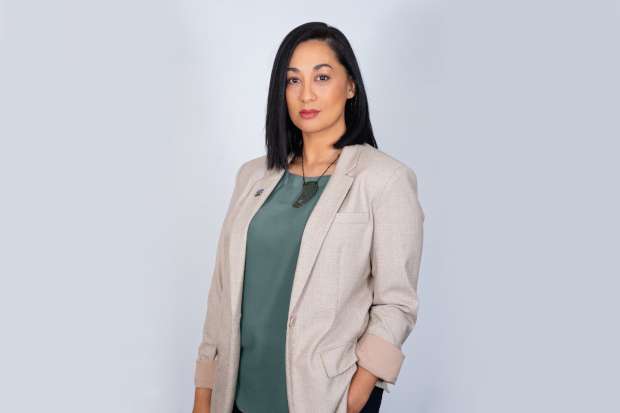As Aotearoa changes, so do our ideas about buying and owning homes
Aotearoa has come a long way in a Aotearoa has come a long way in a short time where our ideas of family and whānau, cultures and cuisines, or even buying a home, have evolved for the better.
Kiwibank knows that buying a first home can be difficult. For many, finding somewhere at the right price, saving enough for a deposit and meeting affordability criteria can be out of reach.
Pip Maxwell, the bank’s senior product manager for home lending, showcases another way that may help people to get into their first home.
Start your property search
It’s called Co-own, and it empowers Kiwi to buy a home by teaming up with friends or family. You could borrow with a group of friends, siblings, or be a couple teaming up with another couple.
Co-own is another way for Kiwi‘s to get on the property ladder. It recognises the challenges that first-home buyers face and that not everyone can share the costs with a partner. Co-own is a different approach to buying a home - one that’ll bring Kiwis together and could get them into a home sooner.
Of course, there are risks involved in borrowing money and owning a property with others, so it won’t be for everyone. That’s where Kiwibank’s home loan specialists across the country can help.
Maxwell says that with Co-own, the expenses that come with owning a home can be shared, and it can also assist people to enter the property market by combining deposits rather than if they were to go it alone.

Pip Maxwell, Senior product manager for home lending, Kiwibank.
Maxwell emphasises that it’s not a one-size-fits-all option. Every Co-own situation is different, so it’s vital that the would-be homeowners talk through their hopes and dreams with Kiwibank’s home loan specialists and also seek independent professional legal and financial counsel.
“Think of it like a pathway on to the property ladder,” Maxwell says.
Essentially, she says, a Co-own arrangement by Kiwibank is a joint home loan structure where all the co-owners are borrowers. “Each individual and the group are liable together for the entire home loan. So as a team, they'll decide how the loan is structured and how they'll split it into portions or different loan amounts and decide which fixed terms they may select to then repay the home loan together.”
For groups thinking about Co-own, Maxwell recommends connecting with a Kiwibank home loan specialist through the bank’s website. “You can select the topic that’s most relevant to your situation and our team will then contact you, walk through what the Co-own inquiry entails and what options could be available.
“This way, we can get to understand what you're wanting to achieve and how we could best support it. Our home loan specialists are well-trained, they are bankers, they are home loan experts - they know how to support customers through the application process and how to ask all the important questions.”
For those who prefer, Kiwibank’s specialists and branches are very accessible. Financial advisers or mortgage brokers who have an arrangement with Kiwibank can also offer customers access and advice on Co-own.
Maxwell stresses the importance of prospective co-owners working with a home loan specialist who is able to understand each of the borrowers’ different situations, and of the group having open and transparent discussions around the terms and repayment of the loan. “You are trying to limit or minimise any surprises that you haven't planned for.”
“We strongly recommend that all co-owners have a property sharing agreement in place before the property is purchased,” Maxwell says. “It helps ensure that all co-owners are aligned and in agreement, and it also helps bring to light potential issues before you get too far down the track.”
Maxwell points out that in this time of inflation and cost of living pressures, many people are still finding it difficult to meet deposit requirements, even though house prices have come back in recent months, so co-ownership may be one solution.
“Co-own is definitely not a proposition that we think everyone should utilise. It is simply a pathway or option for customers, who will make their own decisions as to what's going to suit them specifically.
“The more traditional way of home ownership may not suit everybody's personal circumstances or situation. There's also the element of some unique cultural perspectives, such as multi-generational ownership ties in Pasifika communities, for example. Co-own is more around providing an option rather than saying that this is what people should do.
“It does feel like there’s a changing landscape of household composition in New Zealand now, and you have to be very solution-focused as a family.”
Co-own is also pretty close to home for Maxwell herself. “As a mum and a married couple, we still have all our four children in our home. I’m regularly looking at how my two adult sons, 21 and 20, will be able to move out of home - renting and the cost of living is really painful for a young person as they're starting out in life. Co-owning for my two eldest sons could be a way in which they can move forward on the property ladder, rather than paying astronomical rent.”
Kiwibank has put together a simple guide to help people get started on the Co-own journey. It breaks down the steps and has plenty of useful information and links to consider: kiwibank.co.nz/personal-banking/home-loans/getting-a-home-loan/co-own/














